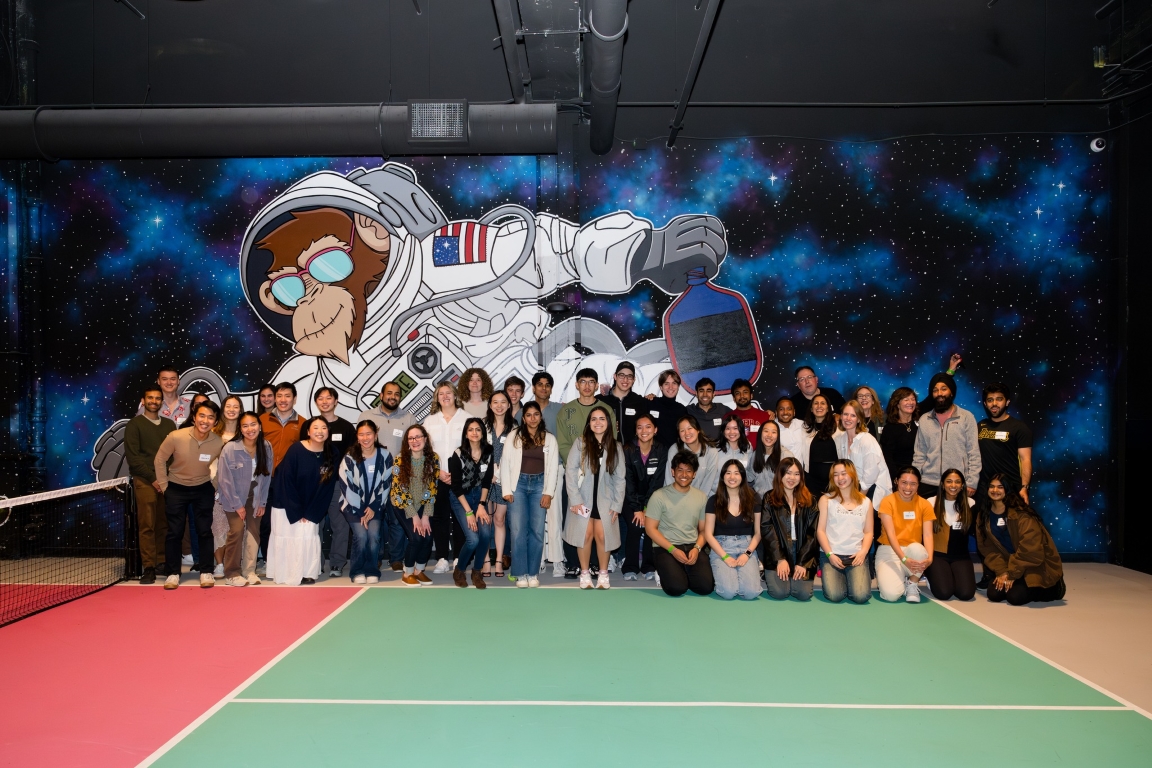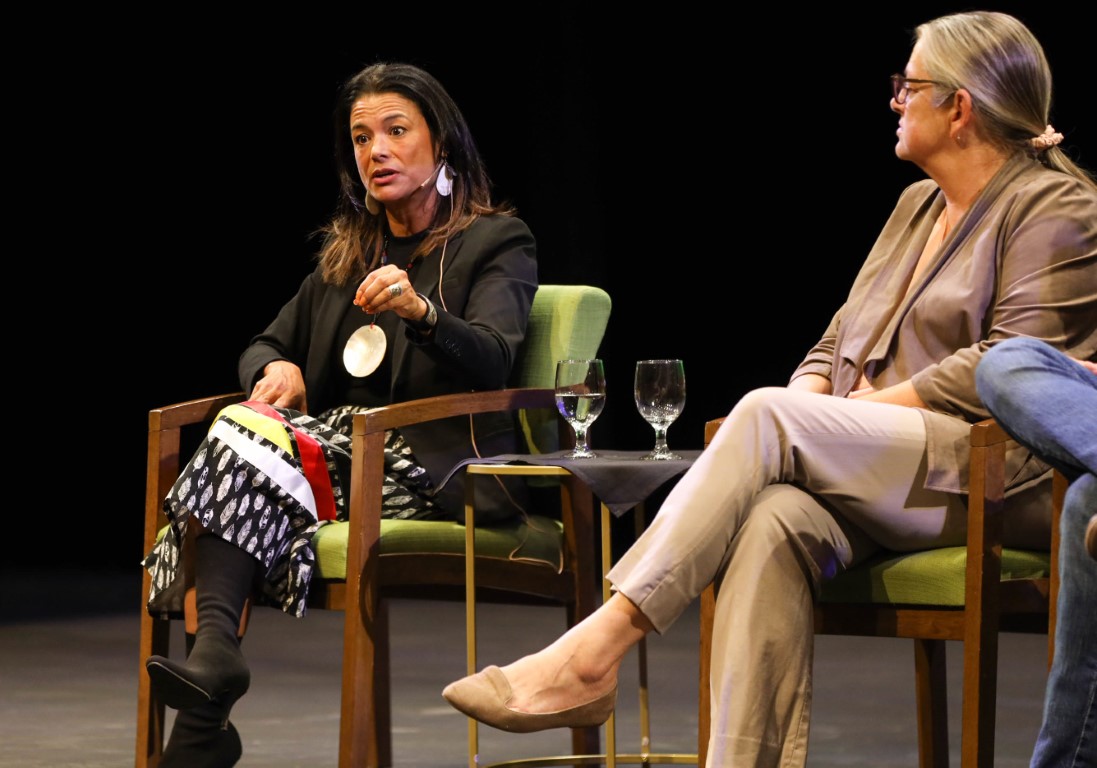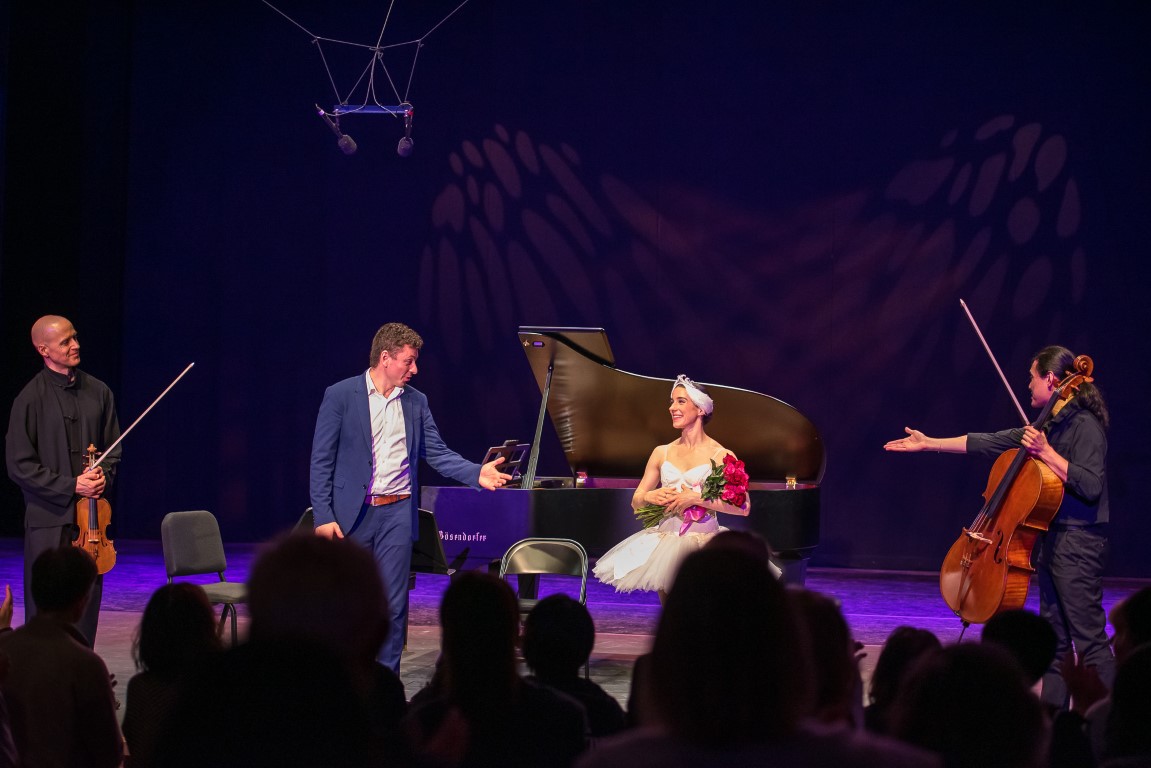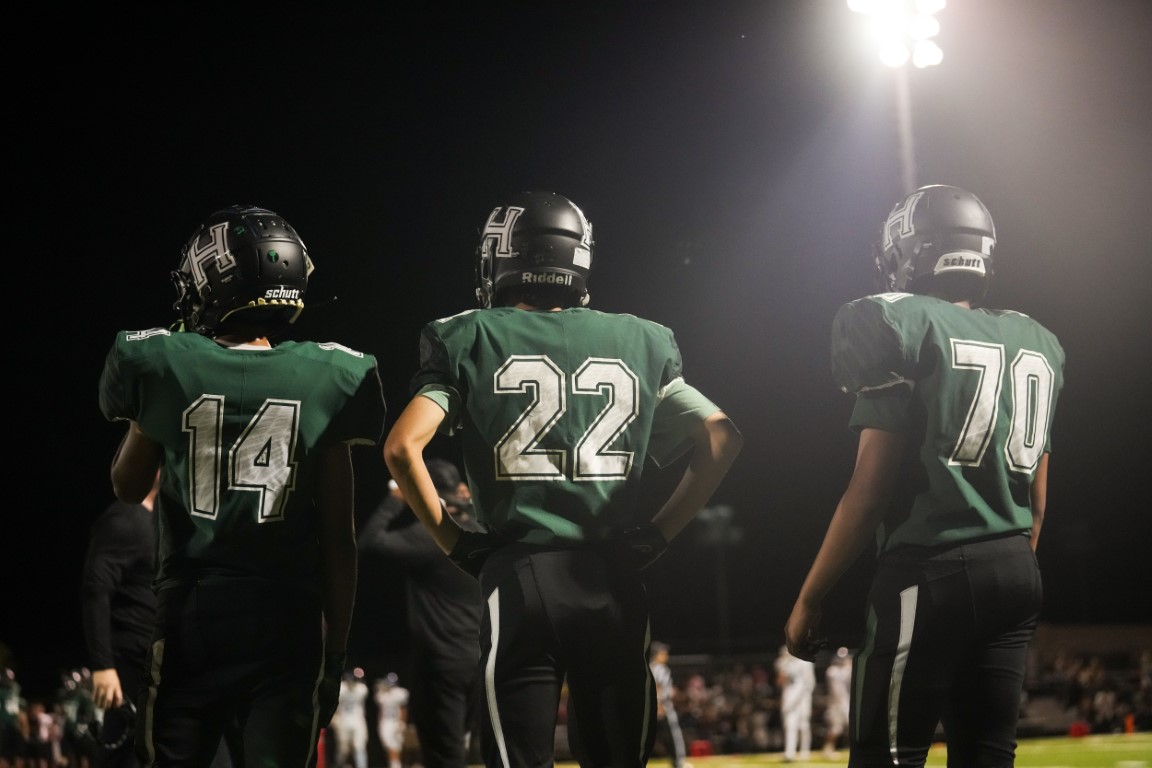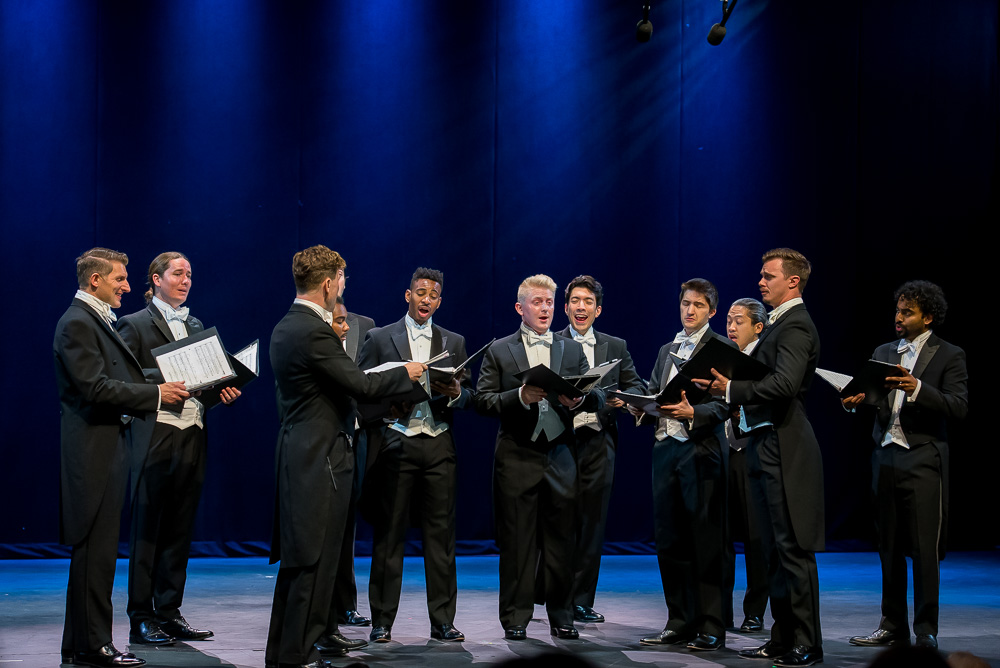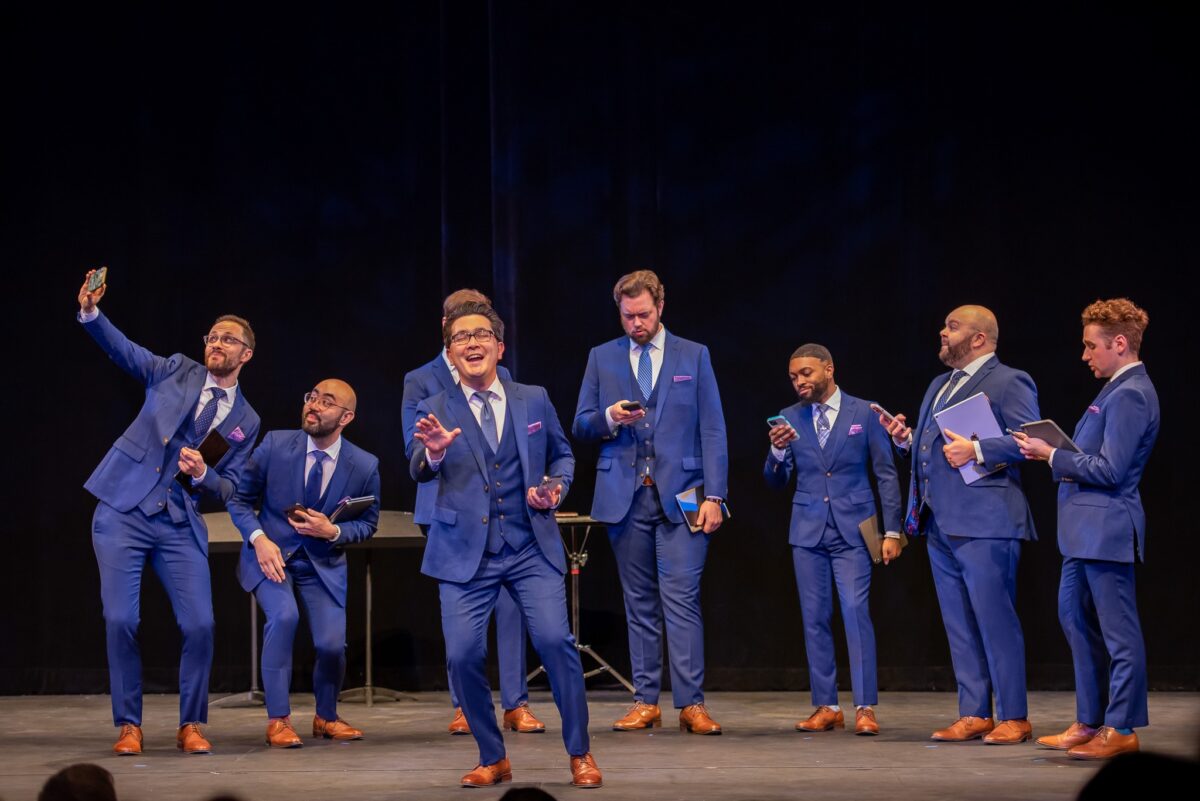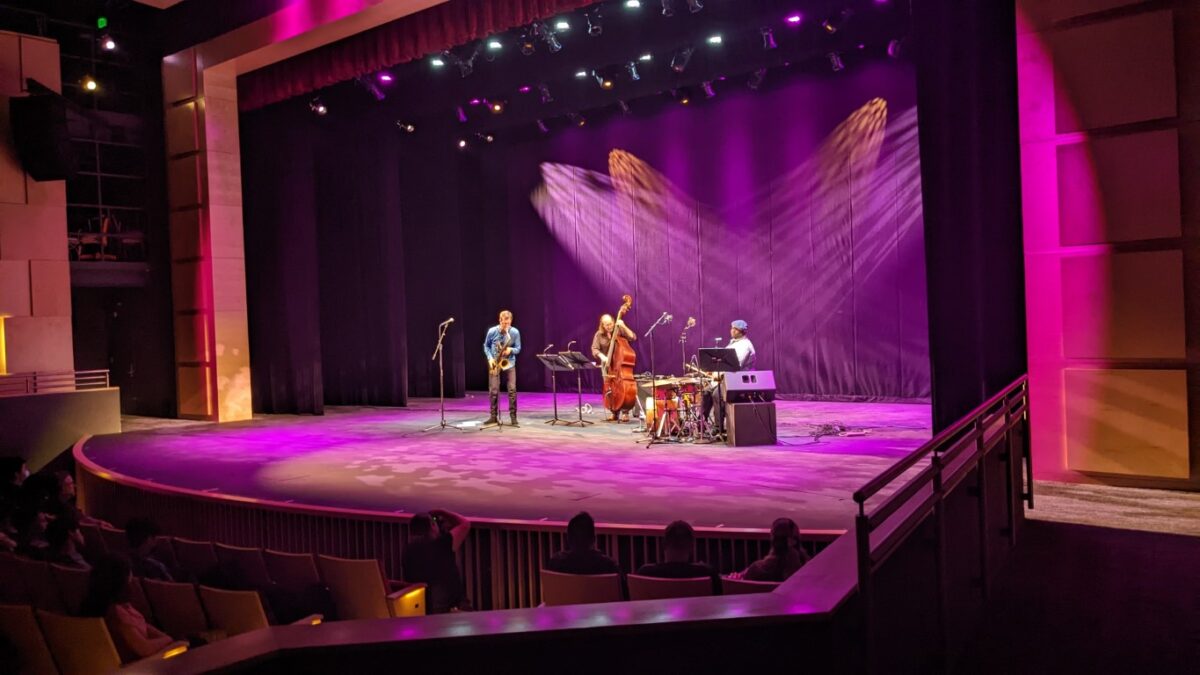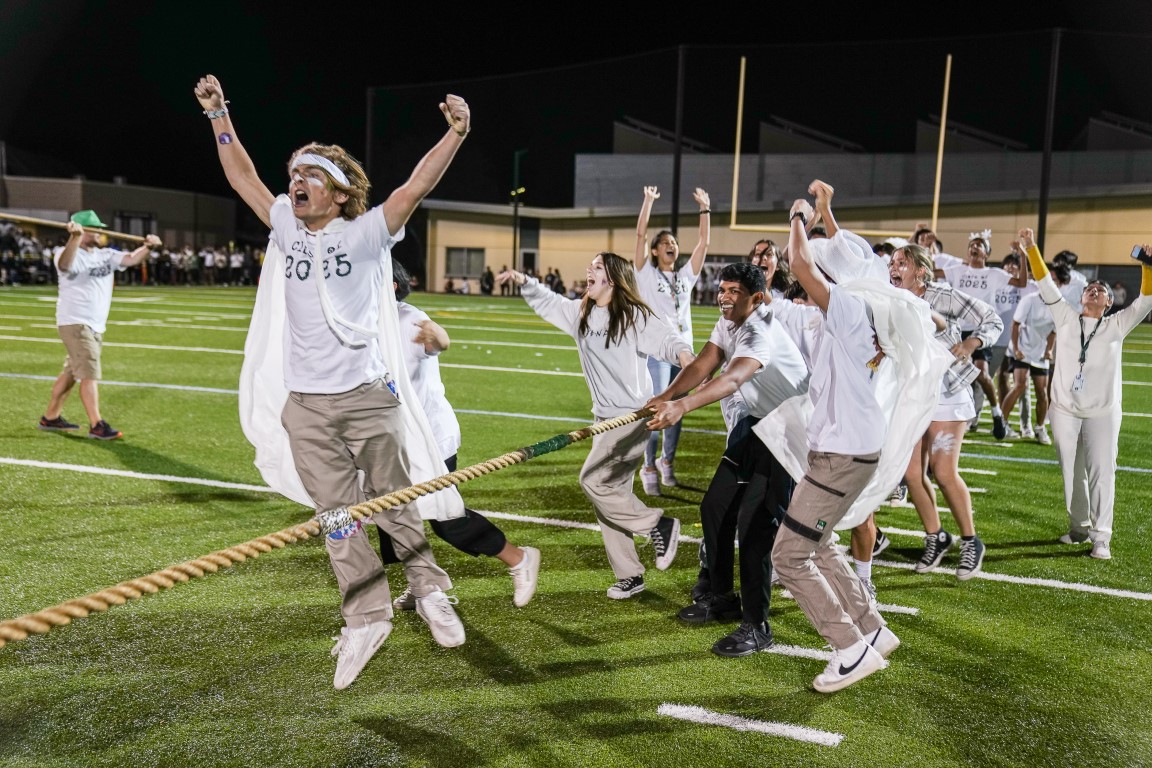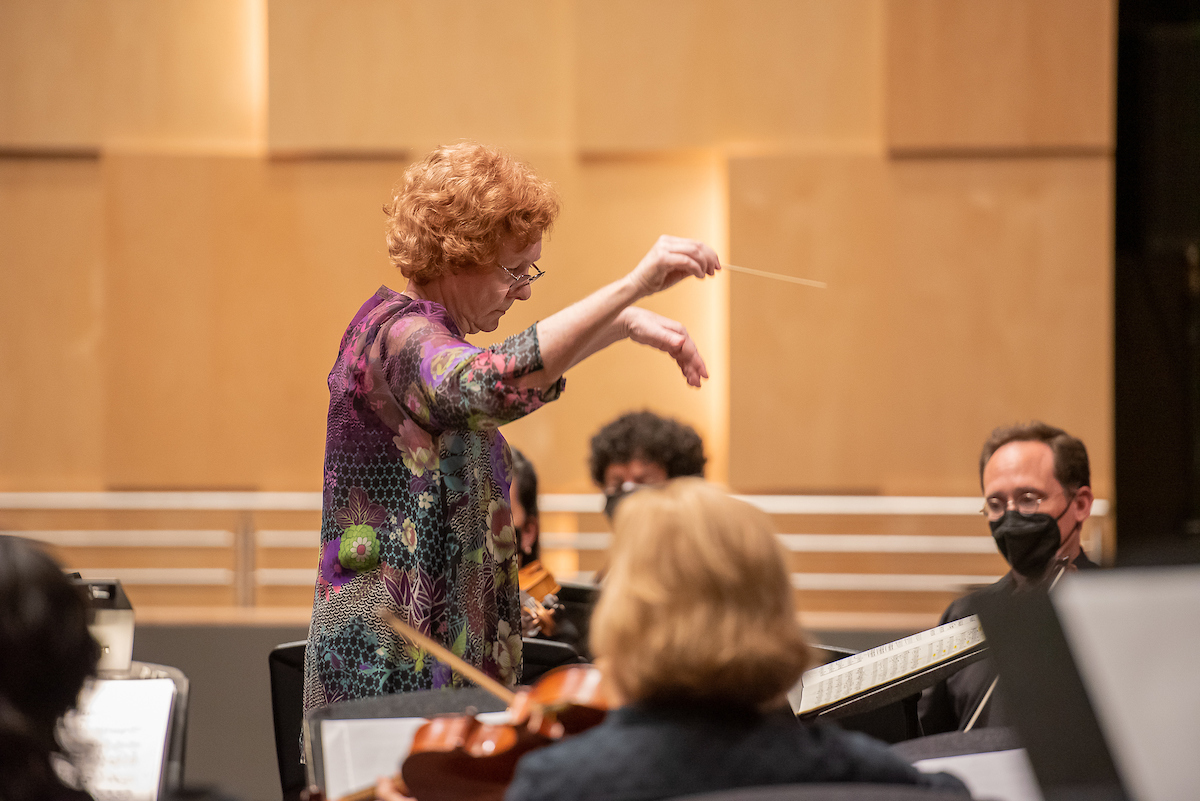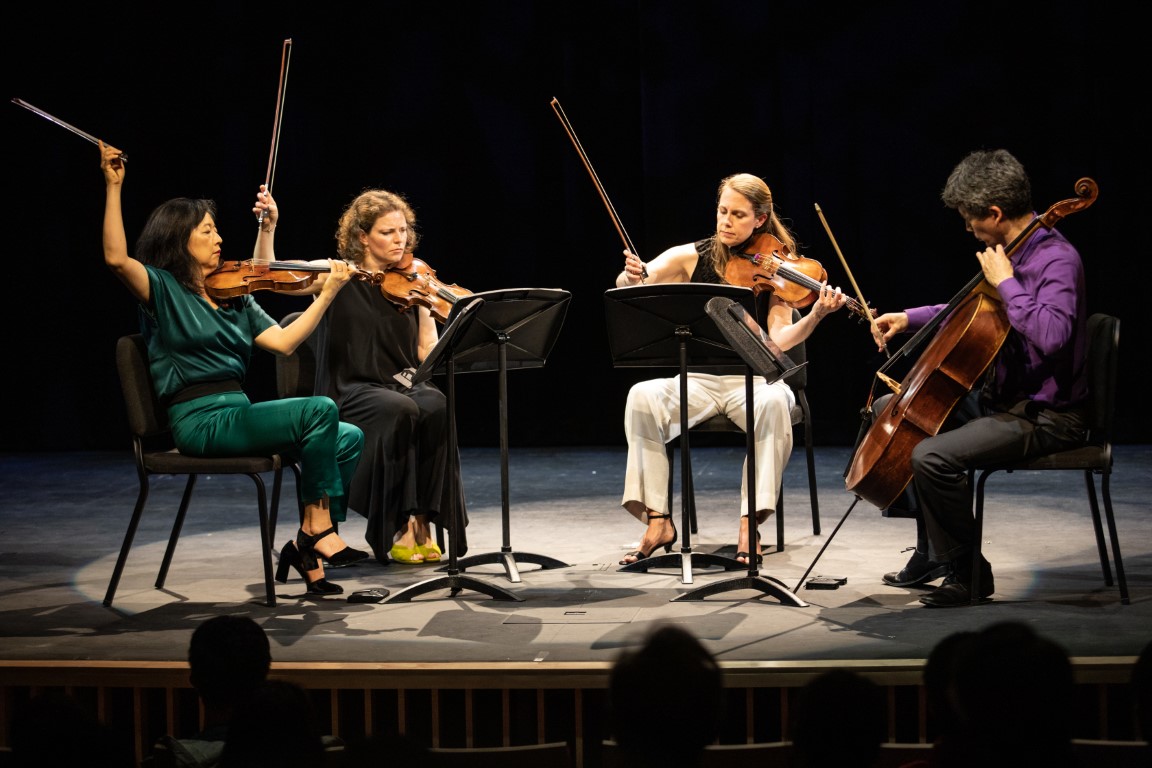The first-ever Alumni Month brought together nearly 400 Eagle alums.
topevents
Panel discusses Muwekma Ohlone tribe’s ongoing fight for federal recognition
A panel of experts on Bay Area Indigenous history was joined by Charlene Nijmeh, chairwoman of the Muwekma Ohline tribe on Nov. 2 for the first event of this year’s Harker Speaker Series.
Jonah Kim and Julia Rowe unite music and dance at Patil Theater
Cellist Jonah Kim and Julia Rowe – accompanied by pianist Dominic Cheli and violinist Moni Simeonov – played (and danced) for a near-capacity crowd at the Patil Theater.
Harker Day attracts big crowds on a sweltering Saturday
The high temperatures didn’t stop thousands from visiting the upper school campus on Oct. 7 for this year’s Harker Day.
Chanticleer dazzles with technique, harmony and diverse repertoire
Cantus closes 2022-23 HCS season on uplifting note
The Twin Cities-based vocal ensemble delivered a diverse and creatively arranged collection of songs.
Donny McCaslin awes Patil Audience at Harker Concert Series
Saxophonist Donny McCaslin left the Patil Theater audience in awe at the second installment of the 2022-23 Harker Concert Series season.
Second annual Harker Day attended by thousands
ore than 3,500 Harker community members headed to the upper school campus this past Saturday for the second annual Harker Day.
San Jose Chamber Orchestra opens 2022-23 Harker Concert Series
The first concert of the 2022-23 season of the Harker Concert Series featured a local favorite, the San Jose Chamber Orchestra.
Daedalus Quartet dazzles at final Harker Concert Series event of the season
Daedalus Quartet displayed adventurous spirit and instrumental mastery at this year’s Harker Concert Series season closer.
